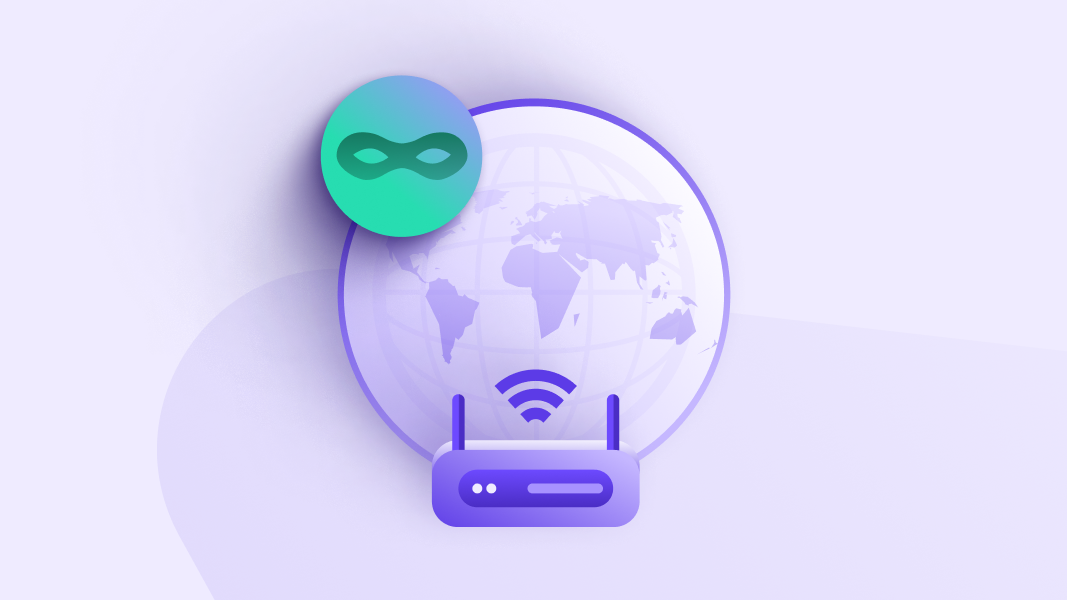What is a VPN kill switch, and why do you need one?
Our full rundown on VPN kill switches and how they work

A VPN is the perfect companion for those looking to protect their privacy online, and a VPN kill switch ensures you are always protected, no matter what.
The popularity of the best VPNs has grown significantly in recent years. According to Windscribe there was approximately 1.5 billion VPN users worldwide in 2023, and by 2030 the VPN market is forecasted to be worth $137 billion.
However, even the most secure VPNs can come momentarily unstuck. A drop in connection could expose your sensitive information, and this is where a kill switch comes in.
This article will explore what a VPN kill switch is, how it works, and why you need one. Read on to find out everything you need to know.
What is a VPN kill switch?
Put simply, a VPN kill switch is a feature that automatically disconnects your device from the internet when your VPN stops working. It ensures your privacy remains intact, even if your VPN connection fails.
This added layer of protection is vital for users who want to safeguard their personal information and maintain their online anonymity.
Types of VPN kill switches
There are two primary types of VPN kill switches: system-level and app-level.
- System-level kill switch: A system-level kill switch works at the operating system level. If your VPN connection drops, the system-level kill switch will block all internet traffic altogether, ensuring your data remains secure. This broad approach provides comprehensive protection for your entire device.
- App-level kill switch: App-level kill switches operate at the application level, allowing you to choose specific apps that will be blocked in case of a VPN disconnection. This offers more granular control over which apps are protected by the kill switch, enabling you to secure only the applications that require it.
When does a VPN kill switch activate?
Picture this: you're enjoying a secure browsing session, and your VPN connection suddenly lapses. It could be due to a pesky network disruption, an unexpected server hiccup, or the VPN application crashing.
If you're interested in how a VPN kill switch works, then you might also be interested in other technical aspects of VPNs. You may want the lowdown on VPN protocols, find out about split tunneling, or understand why VPNs are adopting post-quantum encryption.
This is precisely when your VPN kill switch swoops in to save the day. It’s designed to respond quickly to these events, minimizing any potential risk to your data and privacy.
Modern kill switches typically don’t activate if you intentionally disconnect from your VPN. This allows you to access the internet without a VPN if you choose to, while also keeping you protected when you expect to be.

How does a VPN kill switch work?
A VPN kill switch monitors your VPN connection status and detects connection failures, blocking internet access if the connection drops. Here's a brief overview of how it works:
- Detection of VPN connection failure: The kill switch monitors your VPN connection status and IP address. It springs into action if it detects any disruption, loss of connection, or unintended change in IP.
- Blocking internet access: As soon as a connection failure is detected, the kill switch blocks all internet traffic to and from your device. This ensures that your data is not exposed and your online activity remains private.
- Reconnection: Once your VPN connection is re-established, the kill switch resumes internet traffic, restoring your secure connection.
Why do you need a VPN kill switch?
A VPN kill switch is essential for maintaining privacy and security. Without a kill switch, your data may be exposed if your VPN connection drops, leaving you vulnerable to monitoring, hacking, or data theft.
A kill switch ensures that your online activities remain private, even if your VPN connection fails. Besides protecting your personal information, a kill switch can also help prevent accidental exposure of your IP address, which could lead to location tracking or targeted attacks.

Who needs a VPN kill switch the most?
While a VPN kill switch is a valuable feature for all users, it’s especially critical for the following:
- People who rely on VPNs for secure communication or sensitive data, such as journalists, whistleblowers, and business professionals.
- People who reside in countries with strict online surveillance and censorship, where maintaining privacy is crucial for avoiding potential repercussions from accessing restricted content or expressing dissenting opinions.
- People who use public Wi-Fi networks frequently, as these networks are often less secure and more susceptible to cyberattacks.
- People who torrent, as your IP address is shared with others in the P2P network. If your VPN connection fails, your real IP address will be revealed and a kill switch is a vital way of protecting you.
What VPN providers offer a kill switch?
Most top-rated VPN providers offer kill switches on all platforms. Some of the top VPN providers with kill switch features include:
NordVPN: Provides a kill switch on Windows, macOS, Android, iOS, and Linux. NordVPN's kill switch is known for its reliability and effectiveness, making it a popular choice among privacy-conscious users.
Surfshark: Updated kill switch, which matches that of NordVPN and ExpressVPN, available on Windows, macOS, Android, iOS, and Linux.
ExpressVPN: Offers a kill switch (Network Lock) on Windows, macOS, Android, iOS, Linux, and routers. It makes sure there are no IP address or location leaks in case of a connection drop.
Proton VPN: Robust kill switch that did not fail once during our testing. Available on Windows, macOS, Android, iOS, and Linux.
Bottom line
In a nutshell, a VPN kill switch is like your digital bodyguard, responsible for safeguarding your online privacy and sensitive data. This safety net is poised to protect you if your VPN connection ever falters, defending your information from unwanted exposure.
So, when choosing that perfect VPN provider, don't forget to watch for this indispensable feature. After all, it's never worth gambling with your online security.

Krishi is a VPN writer covering buying guides, how-to's, and other cybersecurity content here at Tom's Guide. His expertise lies in reviewing products and software, from VPNs, online browsers, and antivirus solutions to smartphones and laptops. As a tech fanatic, Krishi also loves writing about the latest happenings in the world of cybersecurity, AI, and software.
- George PhillipsStaff Writer
You must confirm your public display name before commenting
Please logout and then login again, you will then be prompted to enter your display name.
